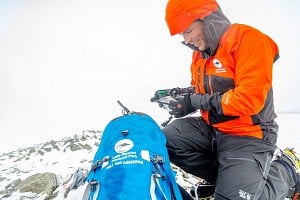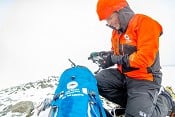In reply to TheFasting:
> Oh no this isn't really about anything like that. I'm just wondering how people use the term. I've seen people writing that something was "more alpine conditions than winter conditions" during winter ascents and wondered what it meant. But the difference seems to be mostly just the amount of snow? Is the temperature and weather relevant?
In that case it means there was a bright blue sunny sky, maybe some snowmelt by lunchtime, just like you would get on a day you would go out in the Alps. As opposed to the typical all-day, gloomy, freezing fog of UK winter conditions
Post edited at 11:47









